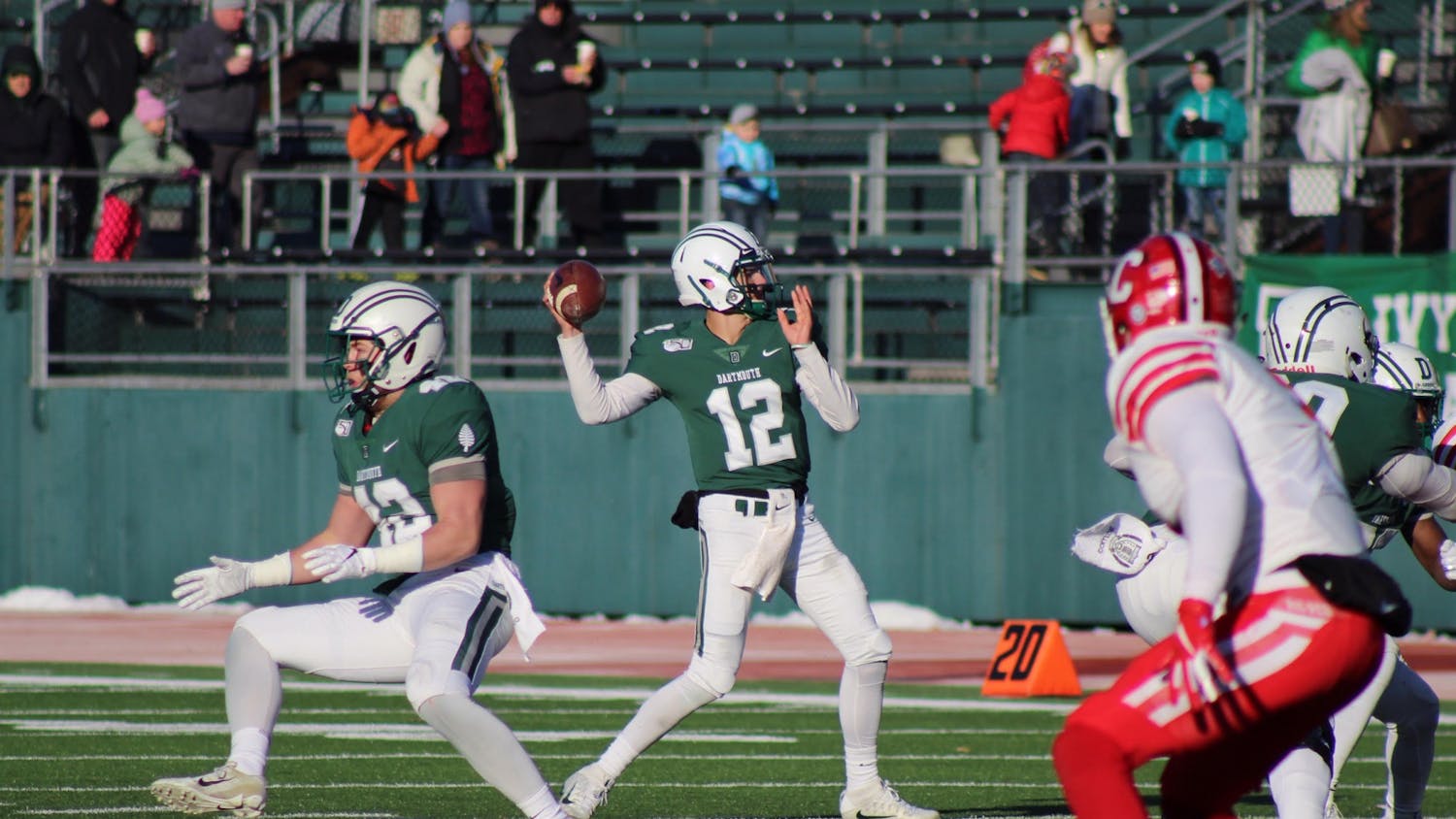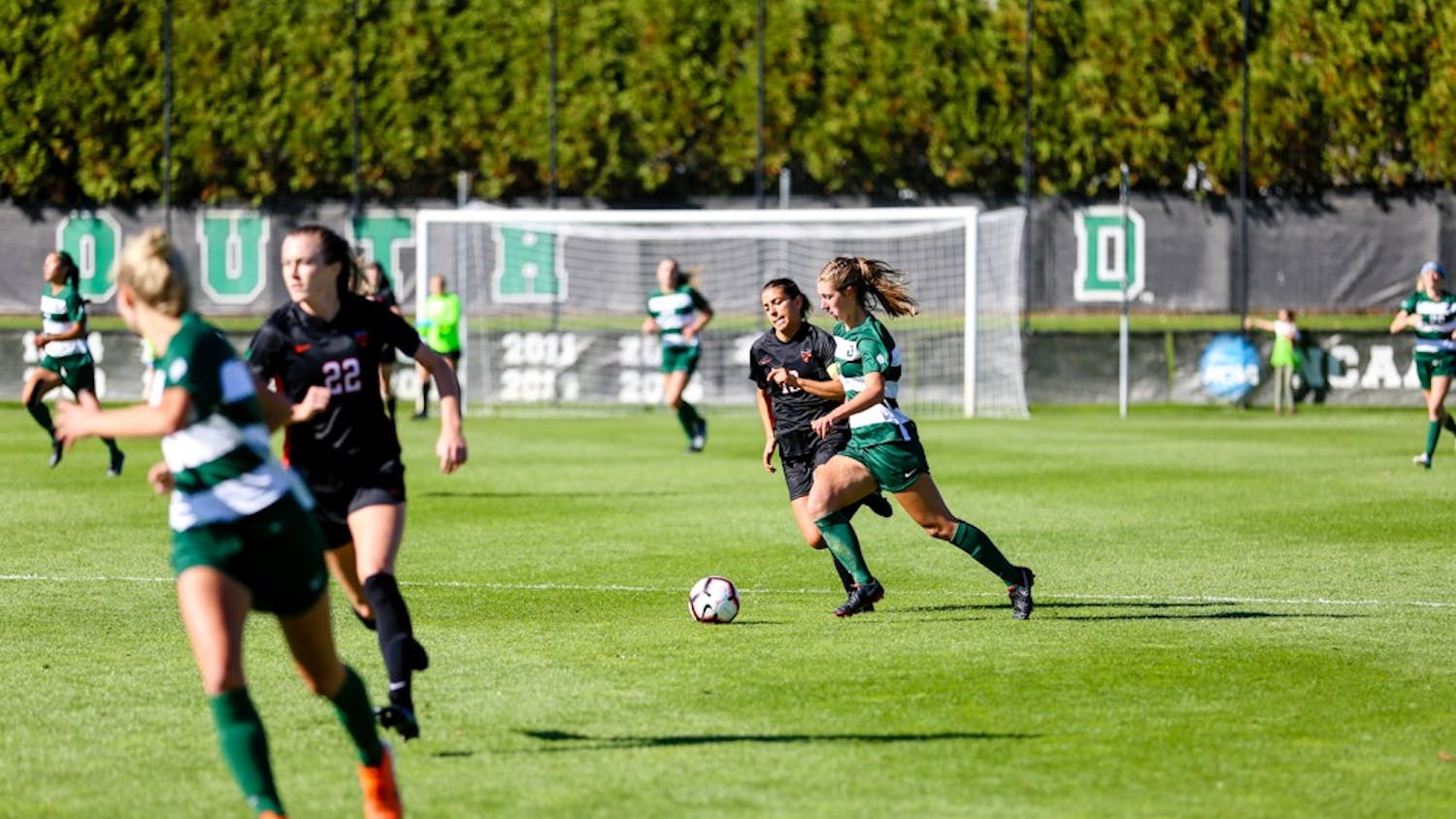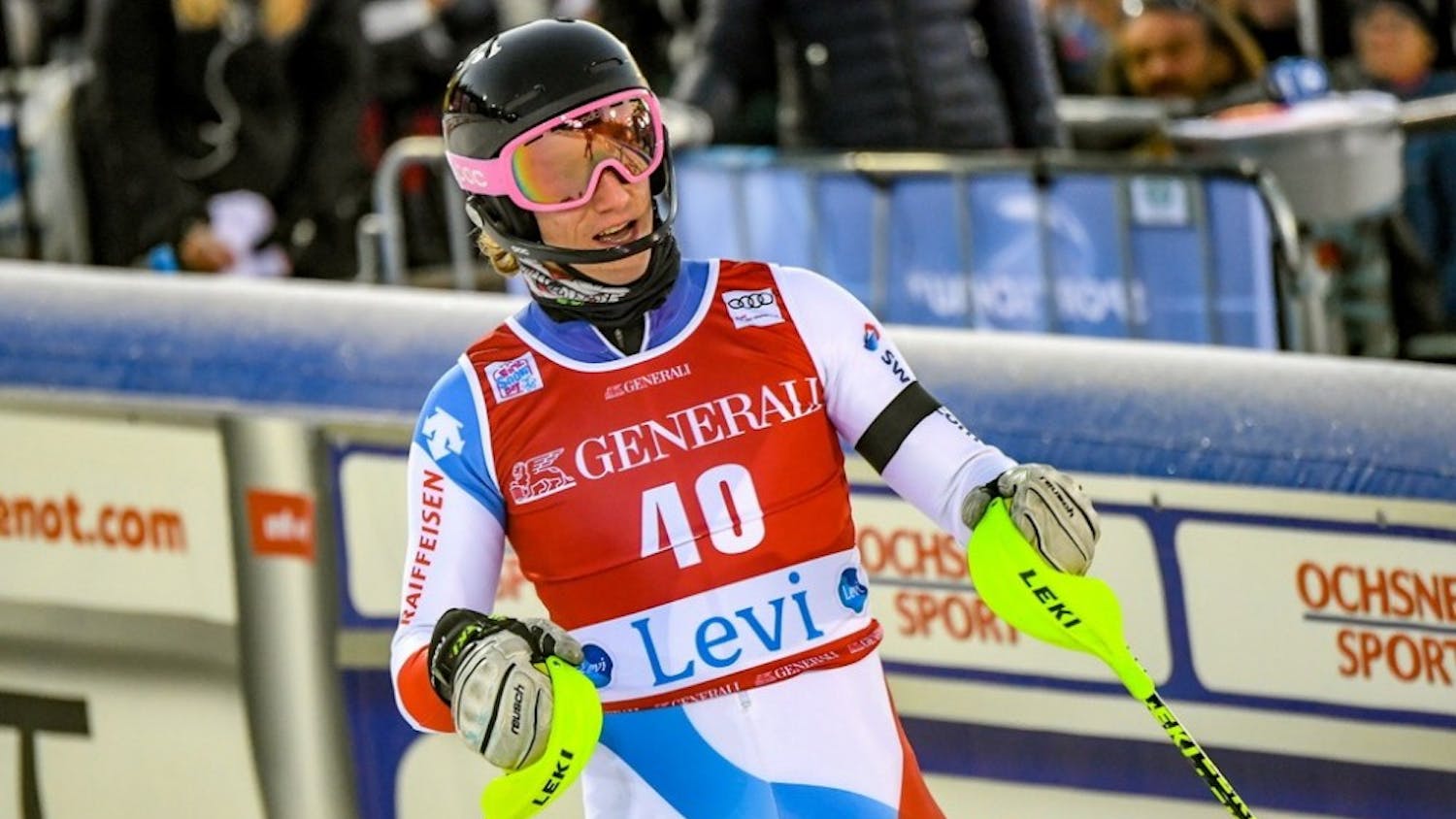Dartmouth men’s basketball might have a 7-8 record through 15 games, but the month of January brings the real action along with a clean slate.
Ivy League play tips off this month, and though the Big Green is far from being the favorite to win the conference, the chance to earn a trip to the NCAA Tournament is right in front of them, however challenging the road may be.
The path to the national tournament has become significantly less challenging in recent years. When the Ivy League became the final Division I conference to institute a postseason tournament before the 2016-17 season, four teams — rather than the singular regular season champion — were given the opportunity to earn the automatic bid. The goal, then, became much more simple: Play well enough to earn one of the top four seeds, win two games and punch your ticket to March Madness.
“Every single game now means something,” said head coach David McLaughlin. “Before the tournament, it was very hard to say that because you might know who has a chance to be the top one team, and it might be between three teams, and there might be five games left in the year. Now, it could go down to — literally, every year, it’s gone down to the last game.”
Even with this seemingly easier route, Dartmouth’s March Madness drought has continued. The Big Green has not appeared in the NCAA Tournament since 1959, a streak of 60 seasons. This is the longest-active tournament drought and the second-longest tournament drought in NCAA history, behind only Harvard University’s 65-year drought lasting from the 1946-47 season through the 2010-11 season.
“I know when I committed to Dartmouth, I loved the school, and I also wanted a chance to make history,” said guard James Foye ’20.
Thus, perhaps it is fitting that Harvard is not only the first but also the second team on Dartmouth’s schedule, with the squad opening conference play on Saturday in Cambridge and coming home for the rematch in Hanover on Jan. 25. Playing the same team in back-to-back games poses extra challenges for game planning, those that head coach David McLaughlin is hoping to evaluate from the get-go.
“You don’t want to necessarily change the game plan if it worked, right?” McLaughlin said. “But, they’re going to have a counter to it, so what’s going to be your counter to that counter? It’s a little bit like a chess match.”
The Crimson will provide some unique problems for Dartmouth right out of the gate. For one, three of the team’s starting five players are at least as big as the Big Green’s tallest starter, Chris Knight ’21. This length gives Harvard inherent advantages in rebounding at both ends of the court, as well as points scored inside the paint. How Dartmouth plans to respond to those challenges will be key.
“We can have mismatches of our own,” Foye said. “If they have better size, we may have a little more quickness and the ability to exploit those matchups on the perimeter. That’s kind of your plan on how to not let them exploit their matchup with size, but also how we can maybe isolate some of their bigger guys in situations they’re not used to.”
The Big Green has had ample time to prepare. With 16 days between Dartmouth’s loss at the University of Vermont and its Ivy opener, the team has taken the break as an extended opportunity to get ready for what is to come. According to Foye, in the team’s first week of the break, the Big Green has been focusing its energy inward — “just getting better at what we do.” The second week will be more centered around how to plan for Harvard.
The Crimson — projected to finish first in the Ivy League in this year’s preseason media poll — might be something of a near-lock to be playing in the Ivy tournament, though Harvard will face stiff competition from Yale University for the No. 1 seed. Per basketball statistician Ken Pomeroy’s rankings as of Sunday, Jan. 12, Yale has the 58th-highest efficiency margin of any Division I school in the country at +12.13 points, with Harvard coming in at 97th at +7.21 points.
“[Harvard and Yale] have separated themselves,” Foye said. “I’m sure that, if you ask them, they know how hard it can be to win in the league, and they know how little metrics can matter night to night, and how anything can happen.”
The postseason picture becomes significantly less clear after that. The University of Pennsylvania (+2.35, 139th) is currently the third-best team in the conference, but the fight for the fourth seed could come down to the collection of Princeton University (-1.84, 191st), Brown University (-3.96, 207th), Dartmouth (-4.18, 209th) and Columbia University (-6.43, 243rd). The other New York Ivy, Cornell University (-10.39, 291st), appears to be more on the outside looking in.
Currently, Pomeroy projects Yale to win the conference with an 11-3 conference record, Harvard to finish in second at 10-4 and Cornell to round out the group at 4-10. The five other schools are all separated by three or fewer wins. Dartmouth is projected to tie with Brown for fifth, at 6-8, a game shy of clinching the fourth Ivy tournament bid.
That’s well within the margin of error. Luke Benz, a Yale alumnus and current data scientist, currently projects the Big Green to have a 30.2 percent chance to earn one of the top four seeds in the conference, according to his college basketball power rankings model.
“It’s so easy for anyone to look very far ahead, and look at the other games, ‘Okay, could we win this? Could we win this? How’s this going to be?’” McLaughlin said. “But that’s really wasted energy. What you have to do is put all of your effort and concentration as coaches and players into winning today. If you can add winning days together, all that does is — five out of six, seven out of nine — that just gets you ready to win the next game.”
Adding difficulty to the schedule is familiarity. Though the games might not be as clustered together as the first two contests versus Harvard, all the teams “know what everyone does,” Knight said. For him, the tightly-knit nature of the conference has added to his personal competitiveness, creating what he referred to as a “personal vendetta” against Brown, for example.
“Last year, during a game, I got dunked on,” Knight said. “One of the dudes posted it on Instagram, and I got tagged like a million times by people. I was just not very happy about that.”
Last season, 35.7 percent of Ivy League games were either decided by three or fewer points or went to overtime, per KenPom, the most of any conference in the nation.
“Every team in our league creates different challenges that makes it exciting,” Foye said. “Game by game, I think I’m just excited for how competitive it’s going to be, and how competitive we’re going to be, and the immense preparation that goes into every game. That makes the wins, when they come out, even more sweet.”
That competitiveness is why, according to McLaughlin, if Dartmouth is going to run the table and end its tournament drought, the team will need immense support from the student body.
“We have to make Leede Arena the toughest place to play in the Ivy League, and there’s no reason why we can’t do that,” he said. “It’s a great level of basketball. It’s easy for students to get to the game. The guys play extremely hard. They’re high-character guys around campus. We need the support here in the gym, so that this is a place that [teams] don’t want to come in and play because they know the environment is going to be in our favor and very hostile for them.”




